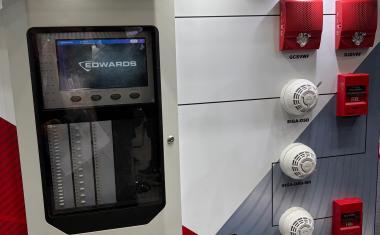CCTV Code of Practice revised to reflect Government requirements
An important Code of Practice for the CCTV sector has been revised by the British Security Industry Association (BSIA) in order to reflect the very latest in surveillance camera in...
An important Code of Practice for the CCTV sector has been revised by the British Security Industry Association (BSIA) in order to reflect the very latest in surveillance camera installation standards. The Code of Practice, which relates to the planning, design, installation and operation of CCTV systems, was first published in the early 1990s and remains one of the most downloaded of the BSIA's publications. With so much change currently affecting the CCTV sector - including newly-created IEC and Cenelec standards - this latest revision was undertaken to reflect current installation practices and bring together all requirements from across the standards landscape.
Mark Wherrett, Chairman of the BSIA's CCTV Technical group, which focuses on standards development and guidance, comments: "The BSIA's Code of Practice remains the go-to document for all CCTV installers, so we wanted to update it to provide users with a cohesive overview of all of the standards and regulations to which they are required to adhere.
"The landscape of CCTV standards is complex and can be difficult to navigate, so this Code of Practice, with associated guidance is intended to provide a single point of information for installers wishing to provide a quality service compliant to legislative requirements."
The revised version of the Code of Practice has also been harmonised with the Government's CCTV Code of Practice, absorbing the 12 principles laid out by the Surveillance Camera Commissioner to enable readers to see where the Government's requirements are reflected in the Code.
Simon Adcock, Chairman of the BSIA's CCTV Section, says: "While the British Security Industry Association's CCTV section welcomed the launch of the Government's CCTV Code of Practice last year, it's important to reiterate that with only 1 in 70 CCTV cameras existing under public sector ownership and the majority of Police evidence originating from privately-owned cameras, this current regulation only covers a tiny proportion of CCTV systems."
"As such, the importance of encouraging the adoption of best practice among installers, while driving standards of system selection, installation and operation, is paramount, and the BSIA is proud to lead the way in the development and dissemination of best practice."
A copy of the BSIA's new Code of Practice can be downloaded from the Association's website. A video of the BSIA's Technical Manager, David Wilkinson, discussing the publication of the revised Code of Practice, can be viewed on the BSIA's YouTube channel.














